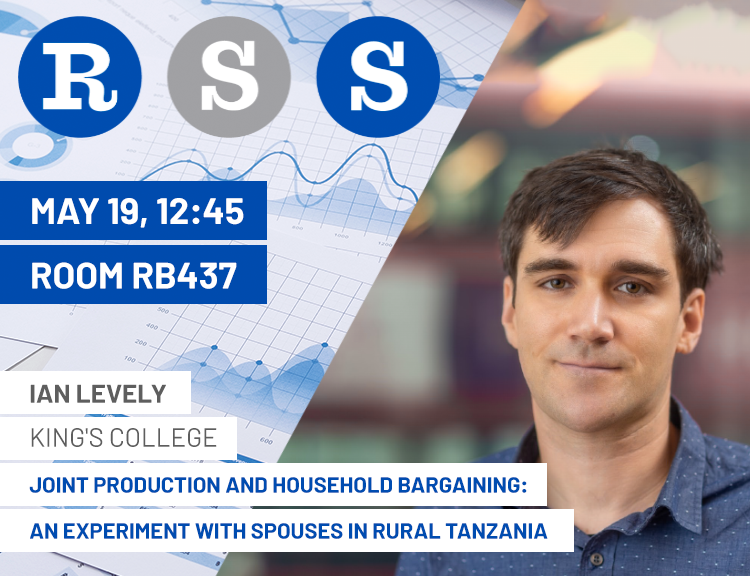Ian Levely (King´s College) 19.5.2023
It is our pleasure that dr. Ian Levely (King´s College) will present on Friday, May 19, 2023, at 12:45 in room RB437 about his research on the topic “Joint Production and Household Bargaining: an experiment with spouses in rural Tanzania” with Marrit van den Berg”.
Registration is not required and anyone who would like to attend is warmly invited.
BIO: Ian is an assistant professor at the Department of Political Economy, King’s College London. His work explores the interaction between individual behaviour, economic development, and institutions, principally through field experiments. He’s worked in several developing countries, including Uganda, Tanzania, and Afghanistan. Previously he was a post-doctoral researcher at Wageningen University, Netherlands, after receiving a PhD from Charles University in Prague, Czech Republic.
ABSTRACT: We present evidence that intra-household decision making can lead to inefficient outcomes. Specifically, we show that a spouse’s control over the household budget increases with private earnings, but not with the share of earnings from a joint venture. This can prevent couples from working together, even when doing so is the most efficient option. We test this using a three related field experiments with married couples in rural Tanzania. In this setting, many household farms exhibit seemingly inefficient behavior, growing multiple crops, each grown primarily by one individual, rather than concentrating household effort on the most profitable crop. We randomly assign spouses work in a real-effort task, earning vouchers that they spent together. In some treatments, we divided the task into multiple “projects”. We find that earning more increases bargaining power, but not if that income is earned from a “joint” project that involved both spouses. In a related choice experiment, we find that many subjects avoid joint projects, even when doing so is costly, and that these choices are correlated with lower agricultural income. Similar mental accounting could explain inefficient intra-household decision-making in other settings.
